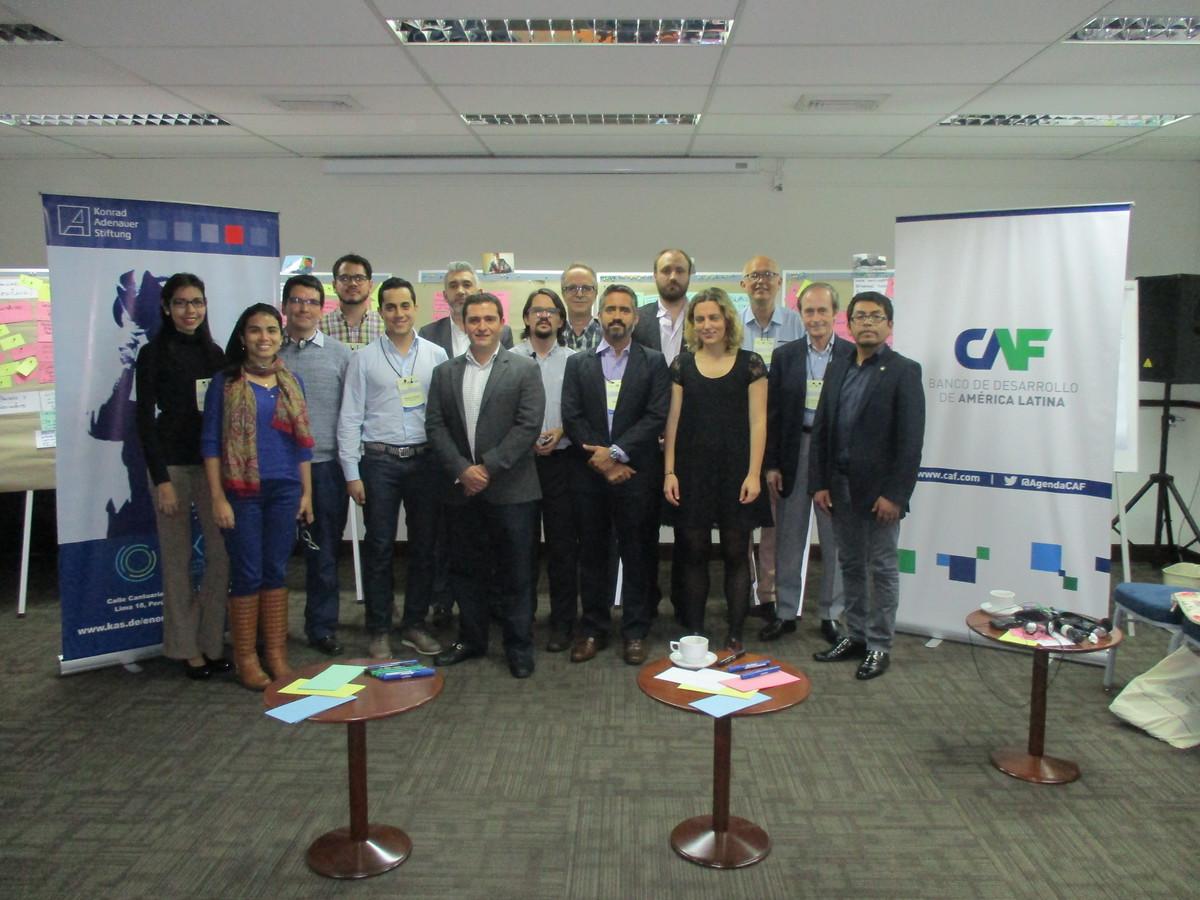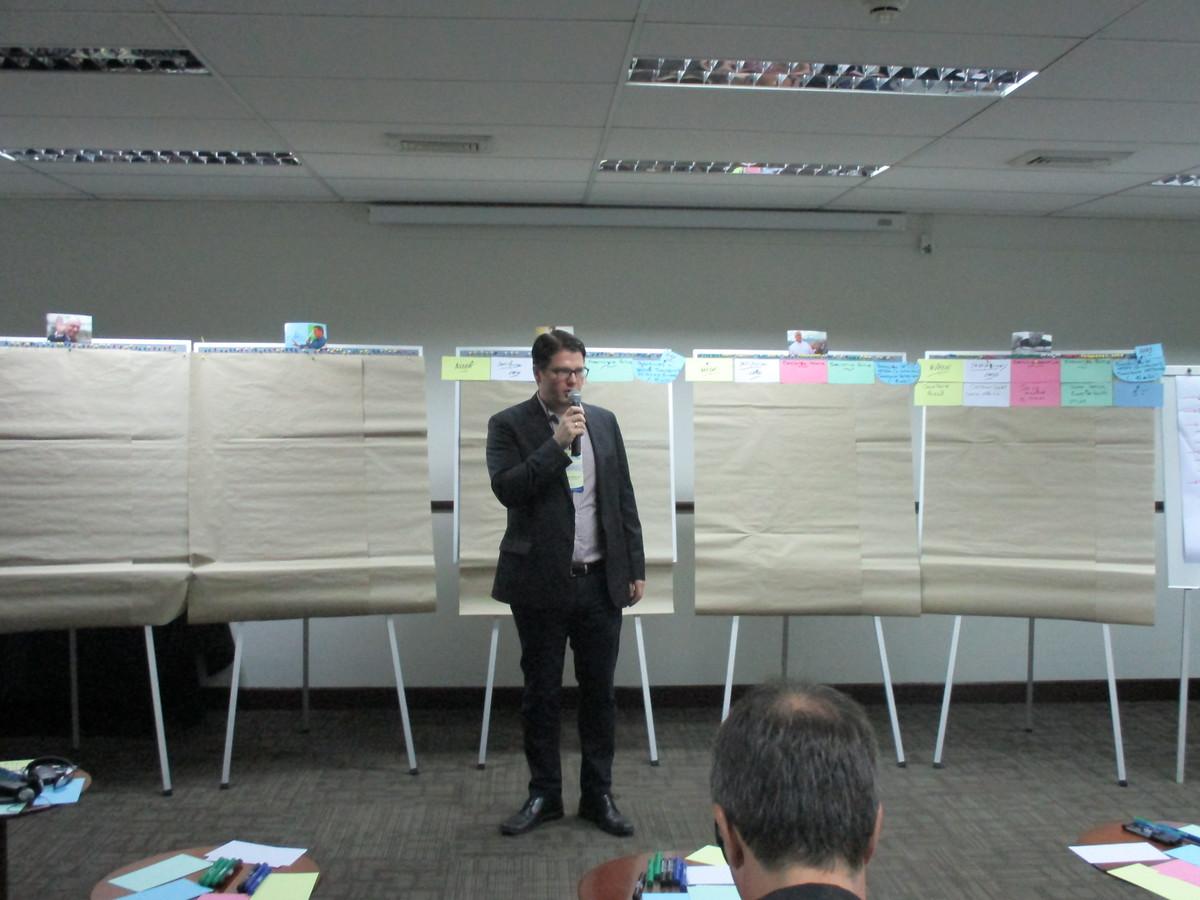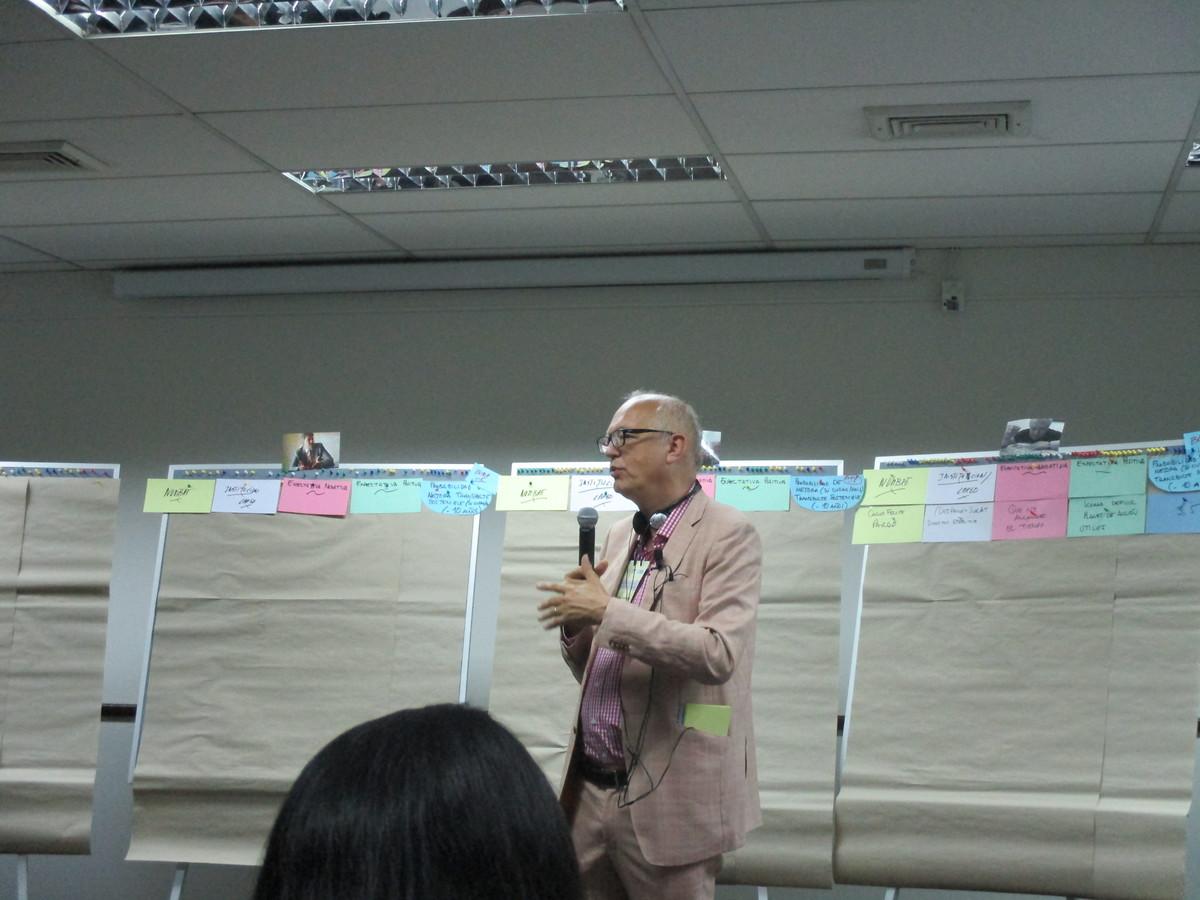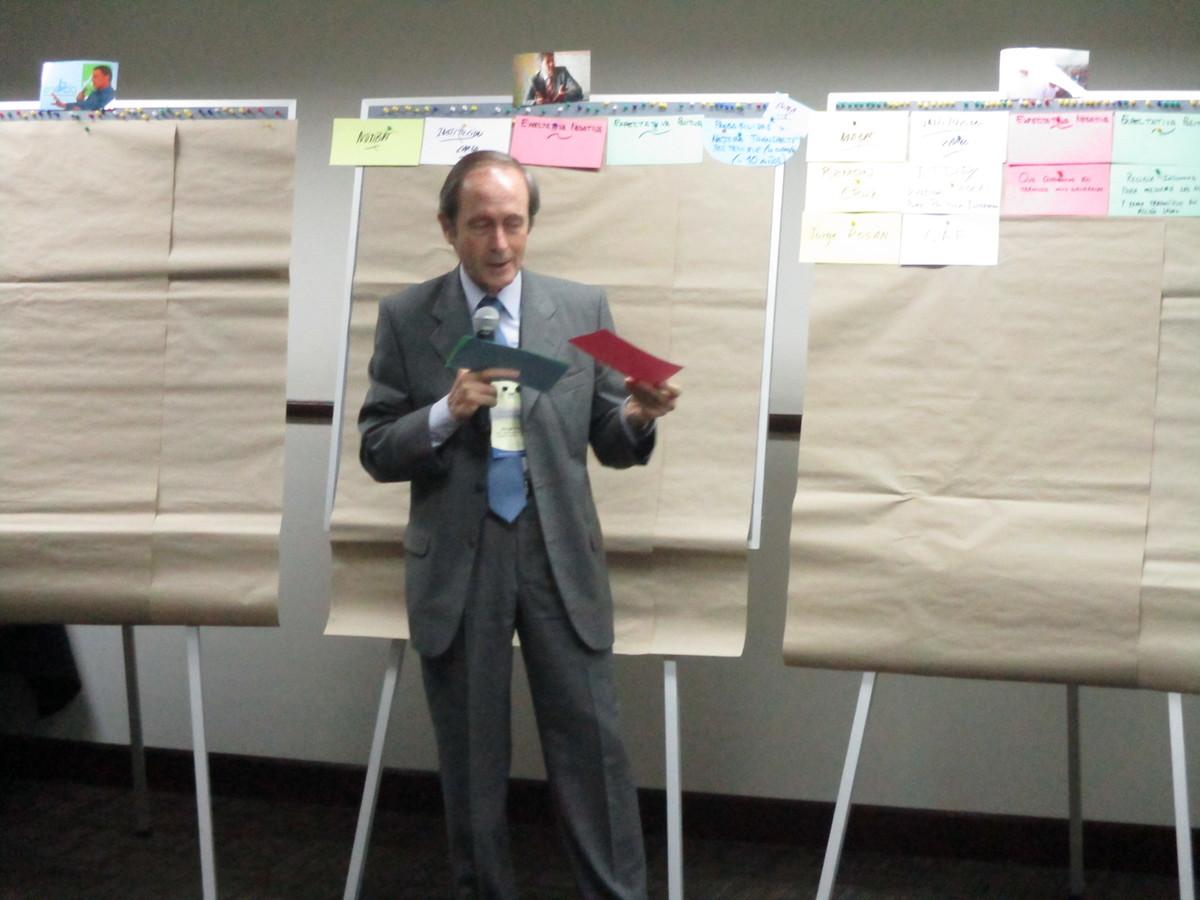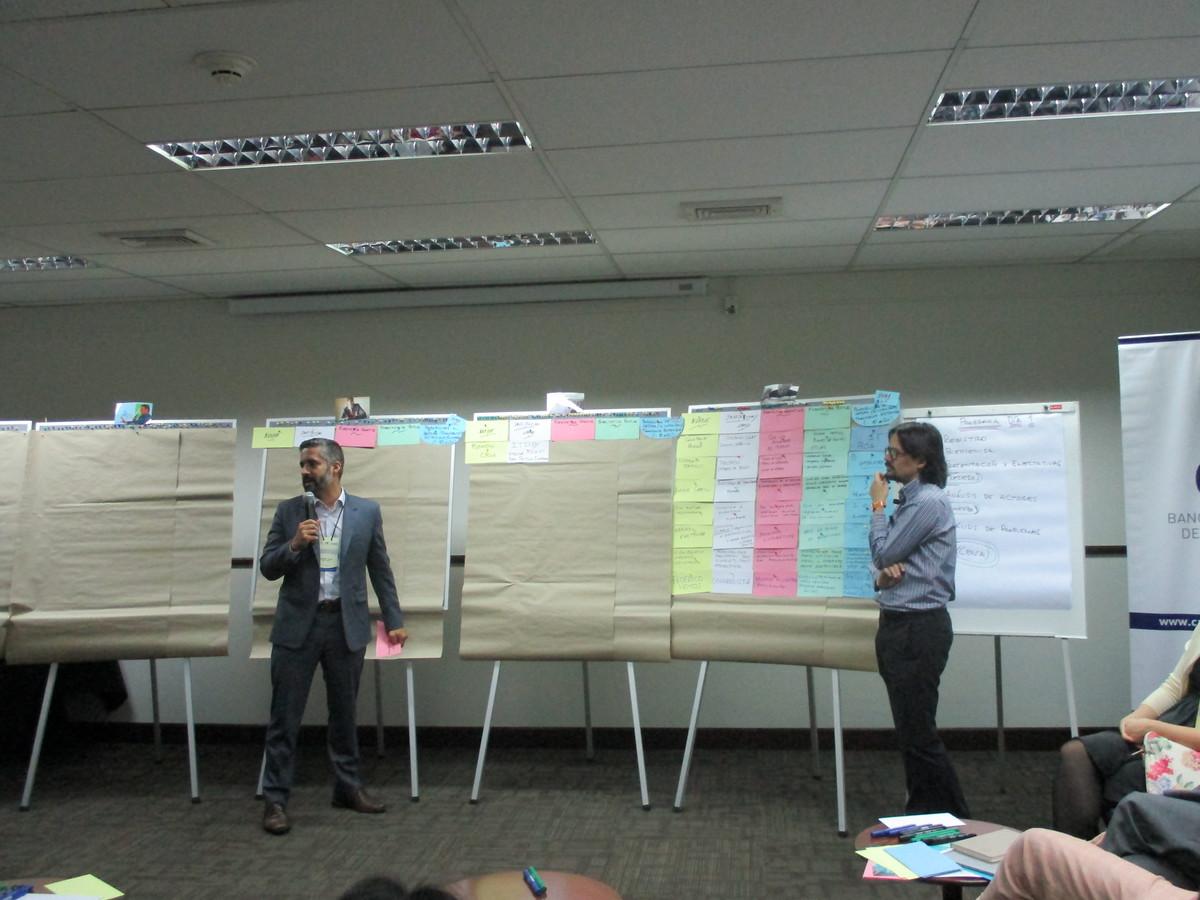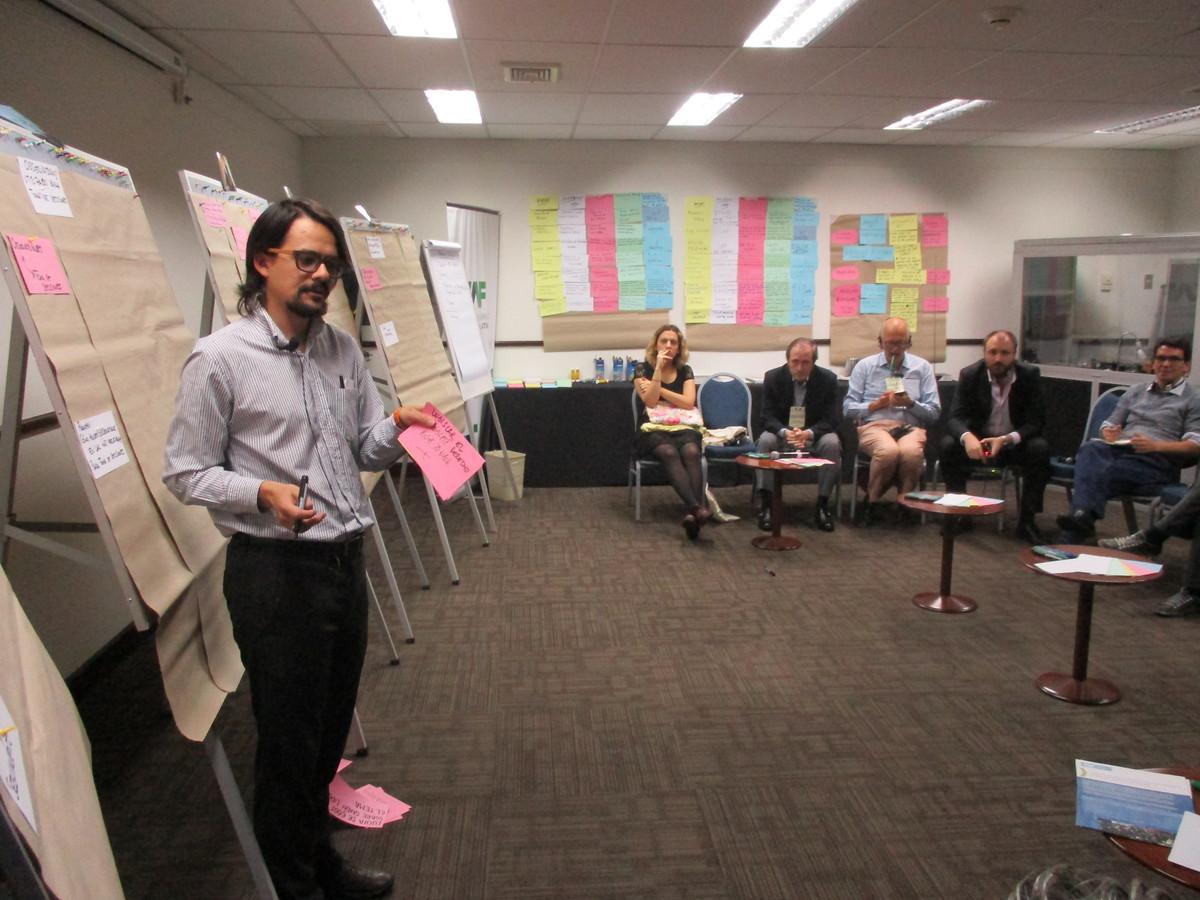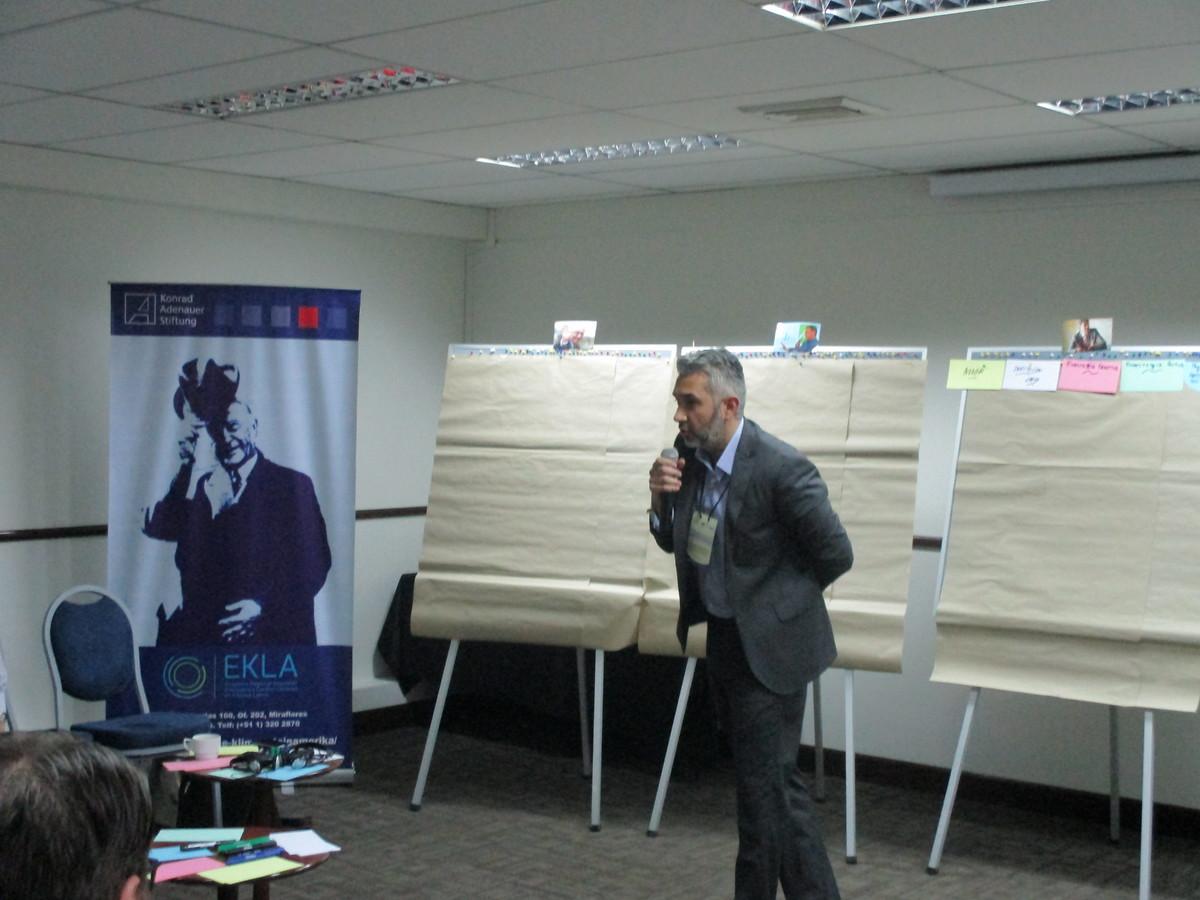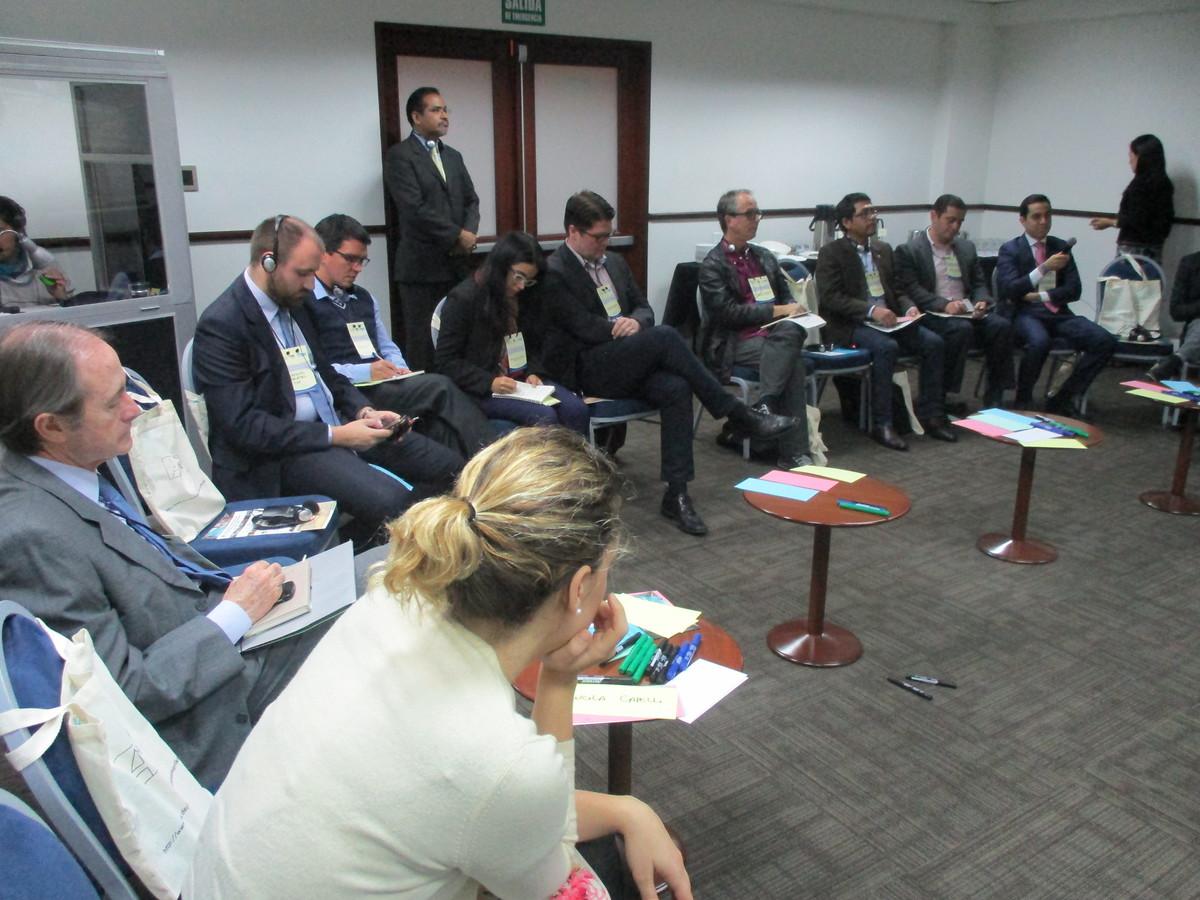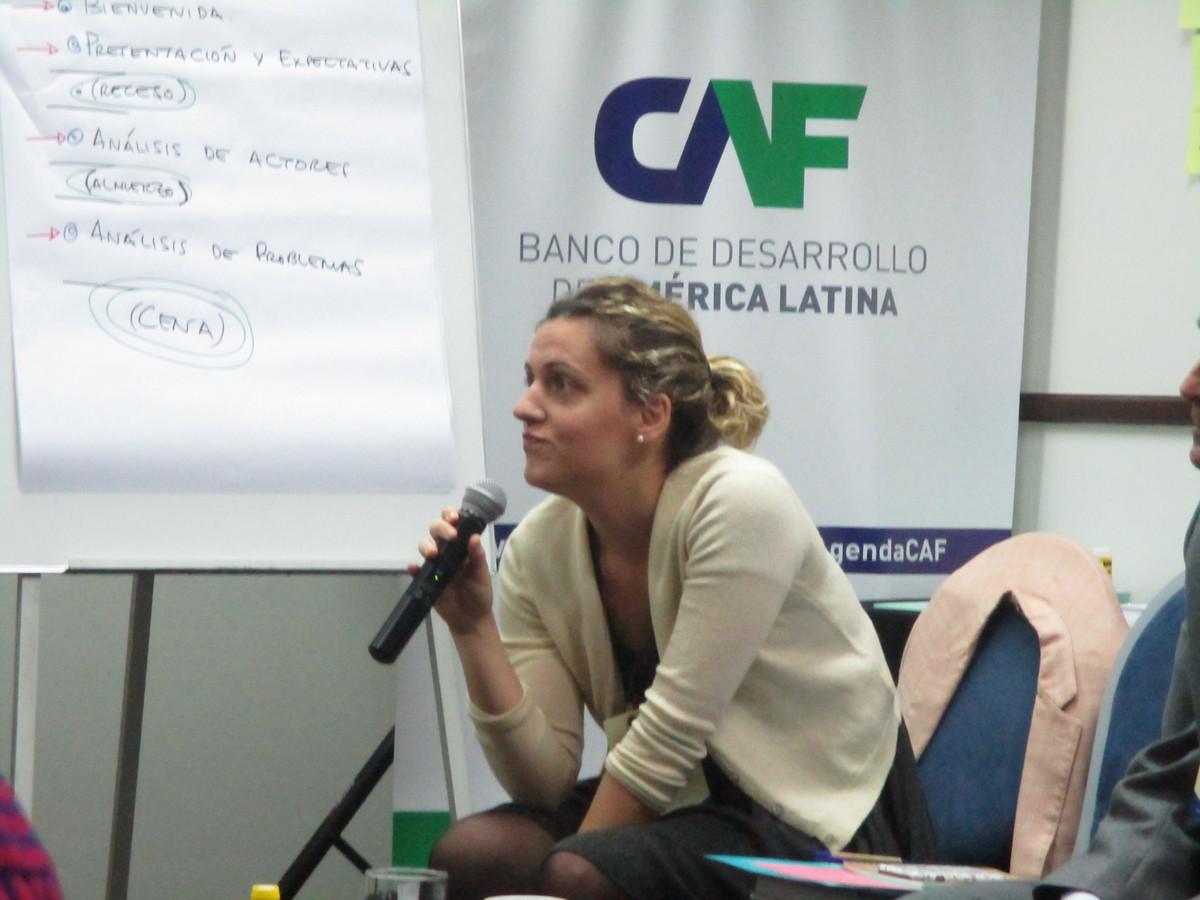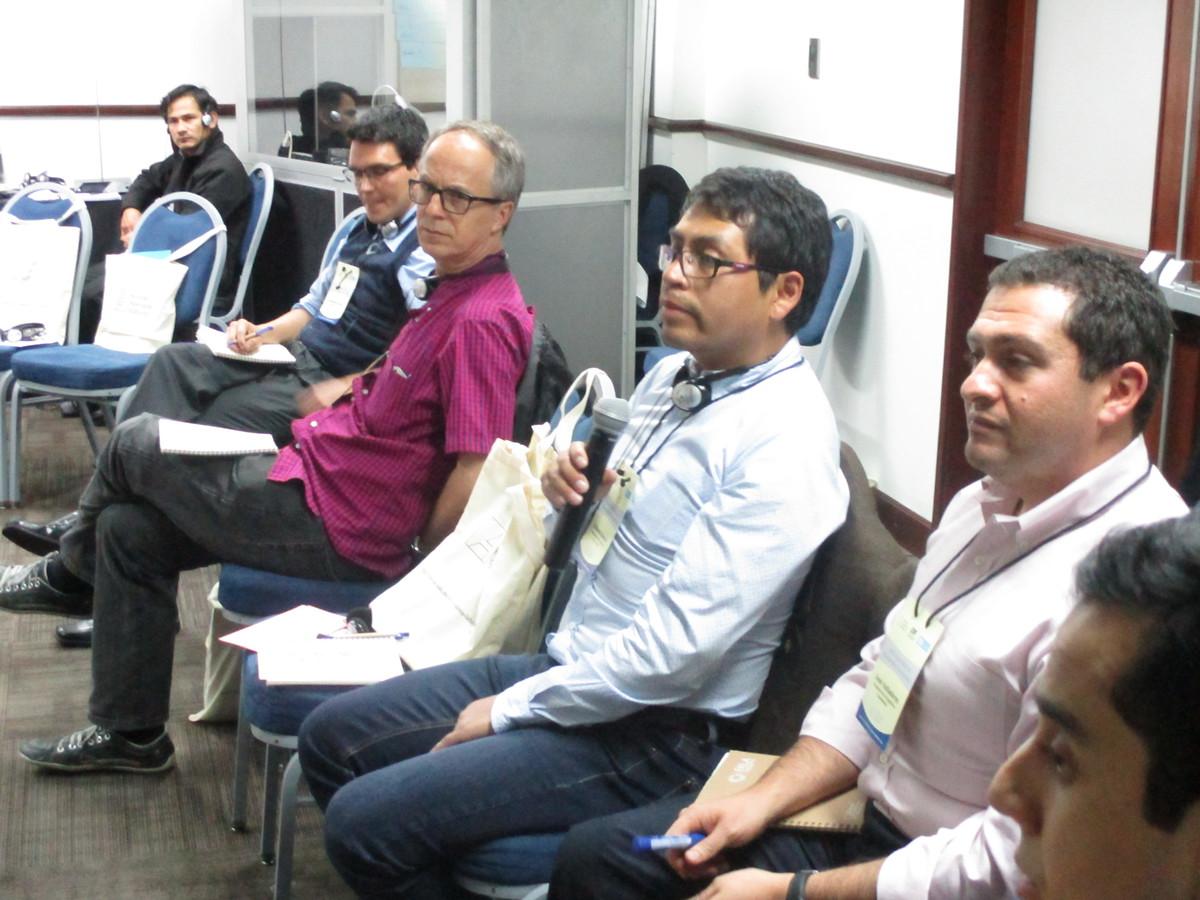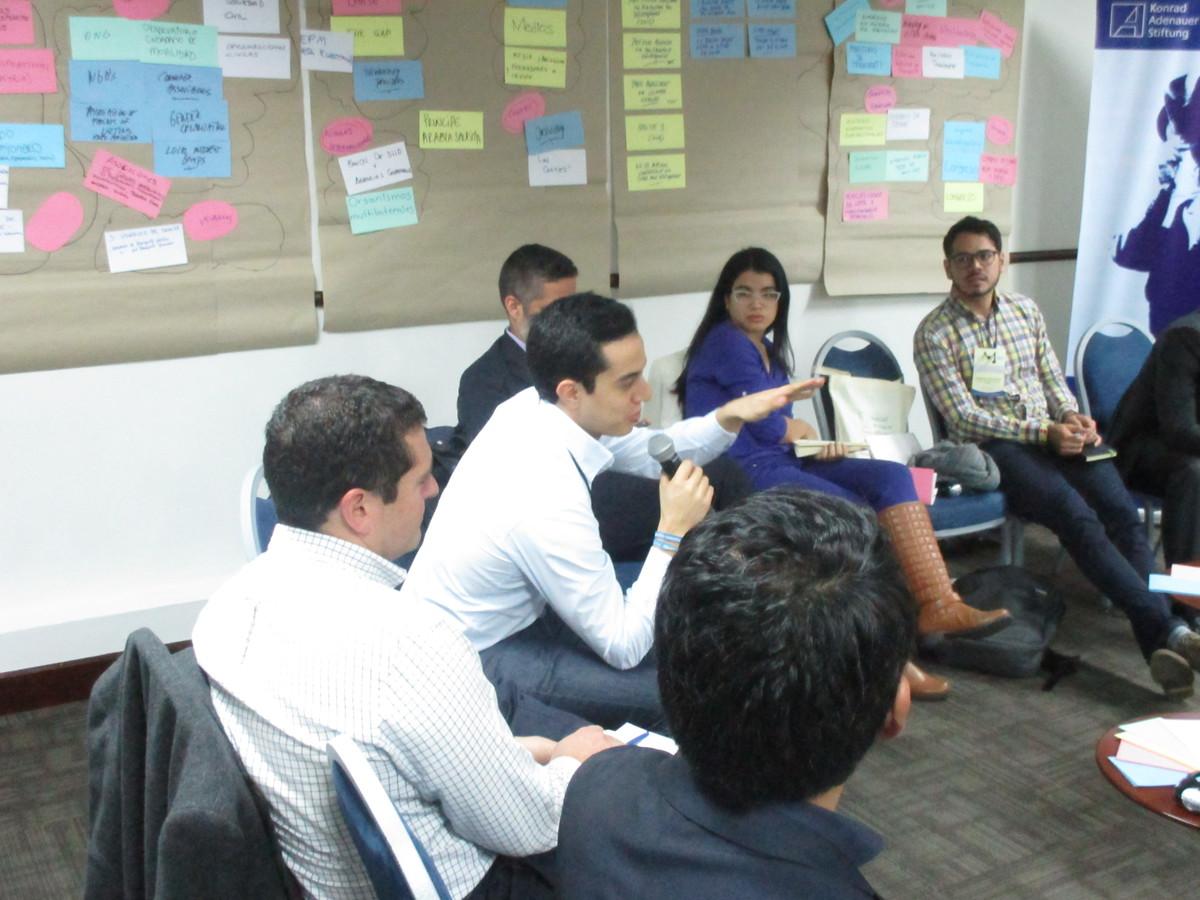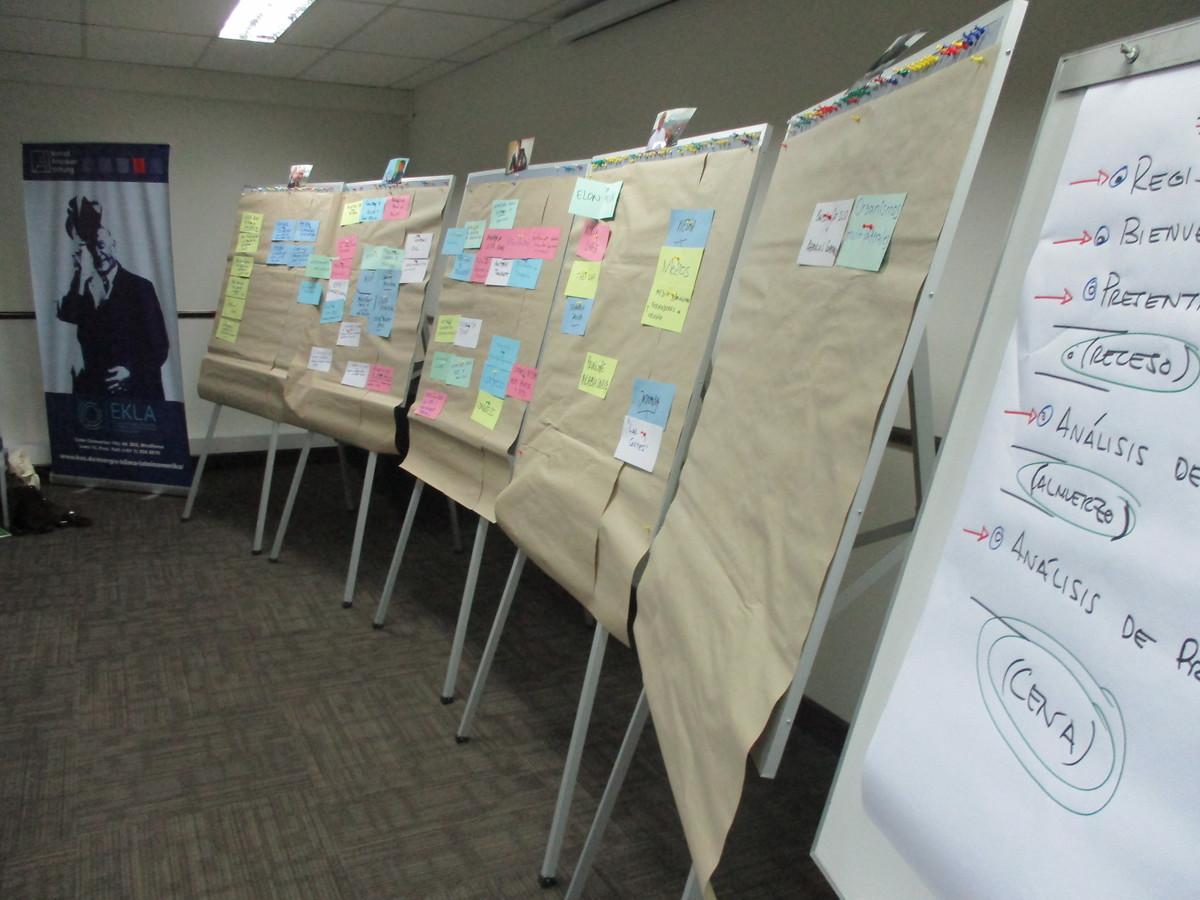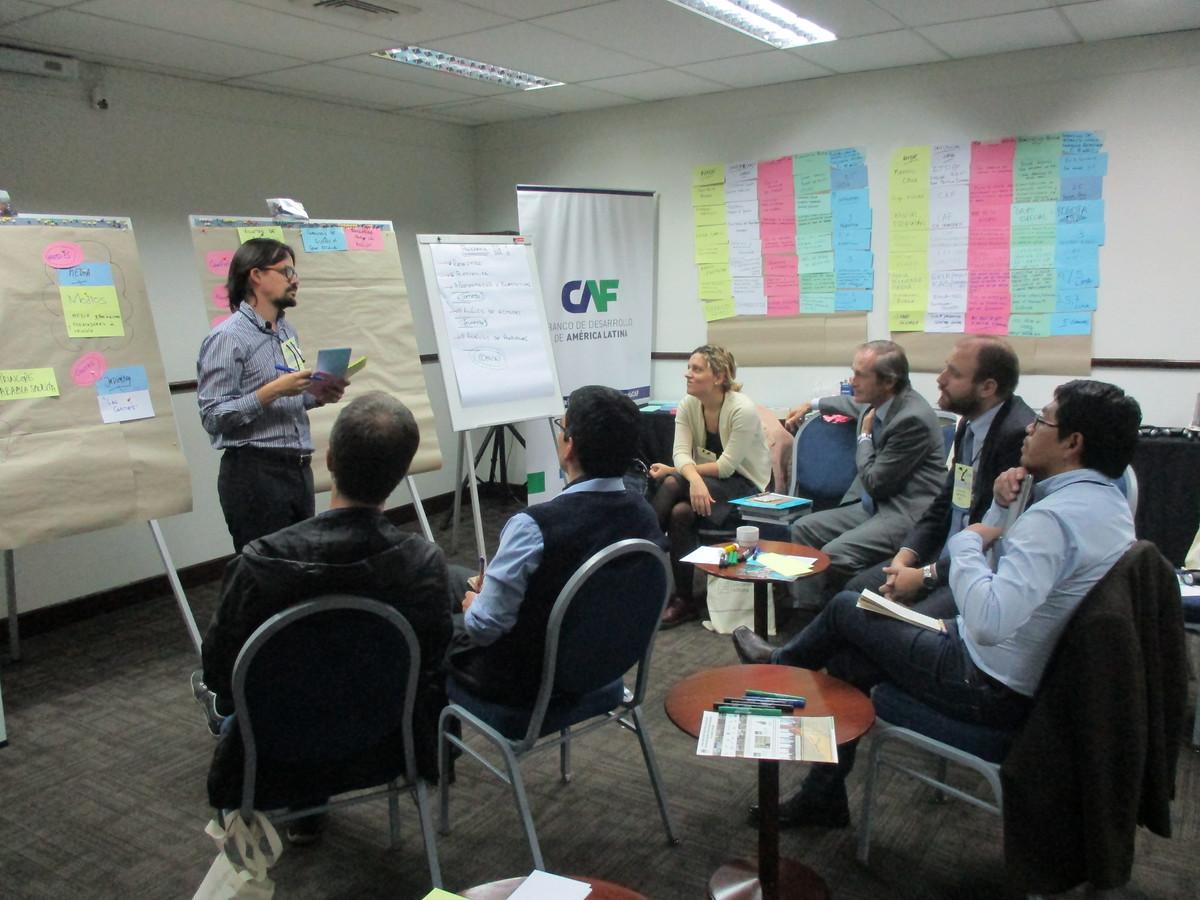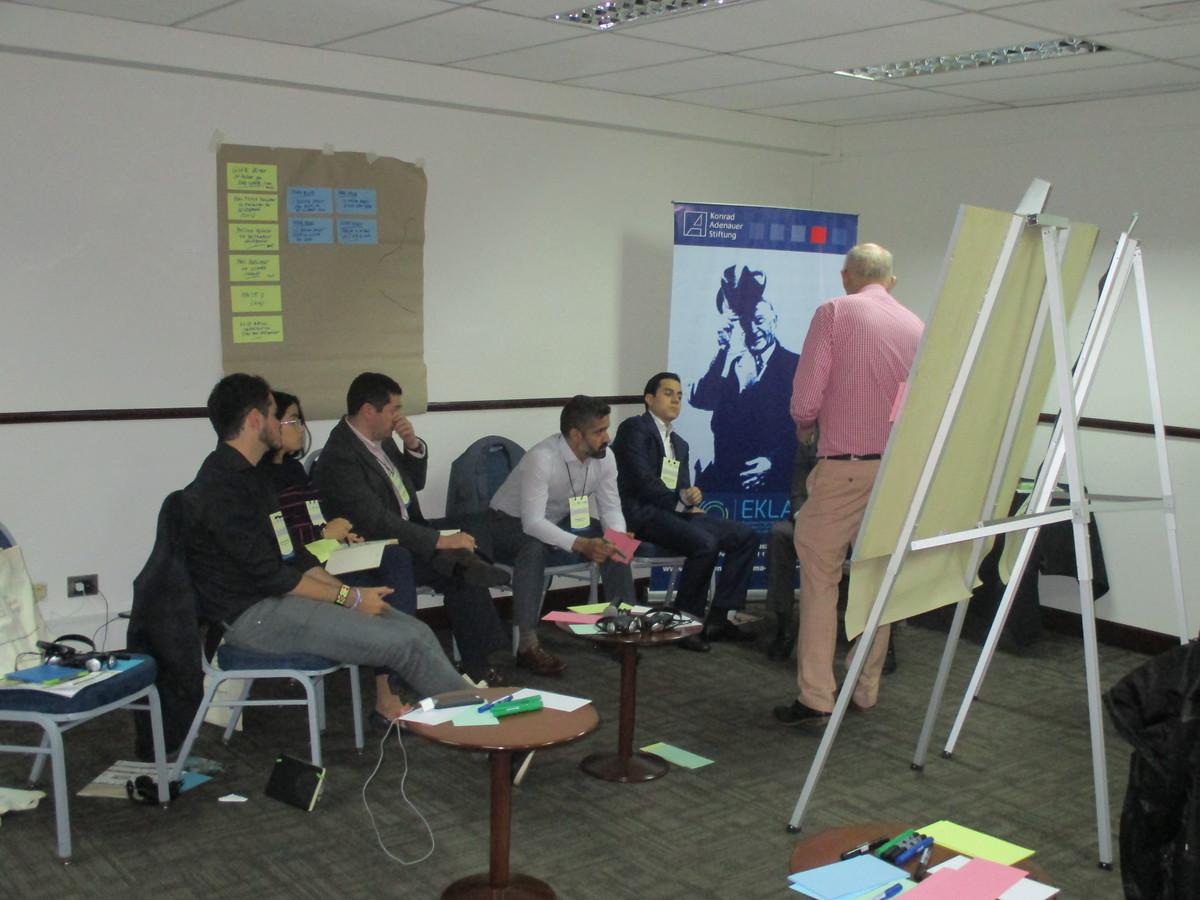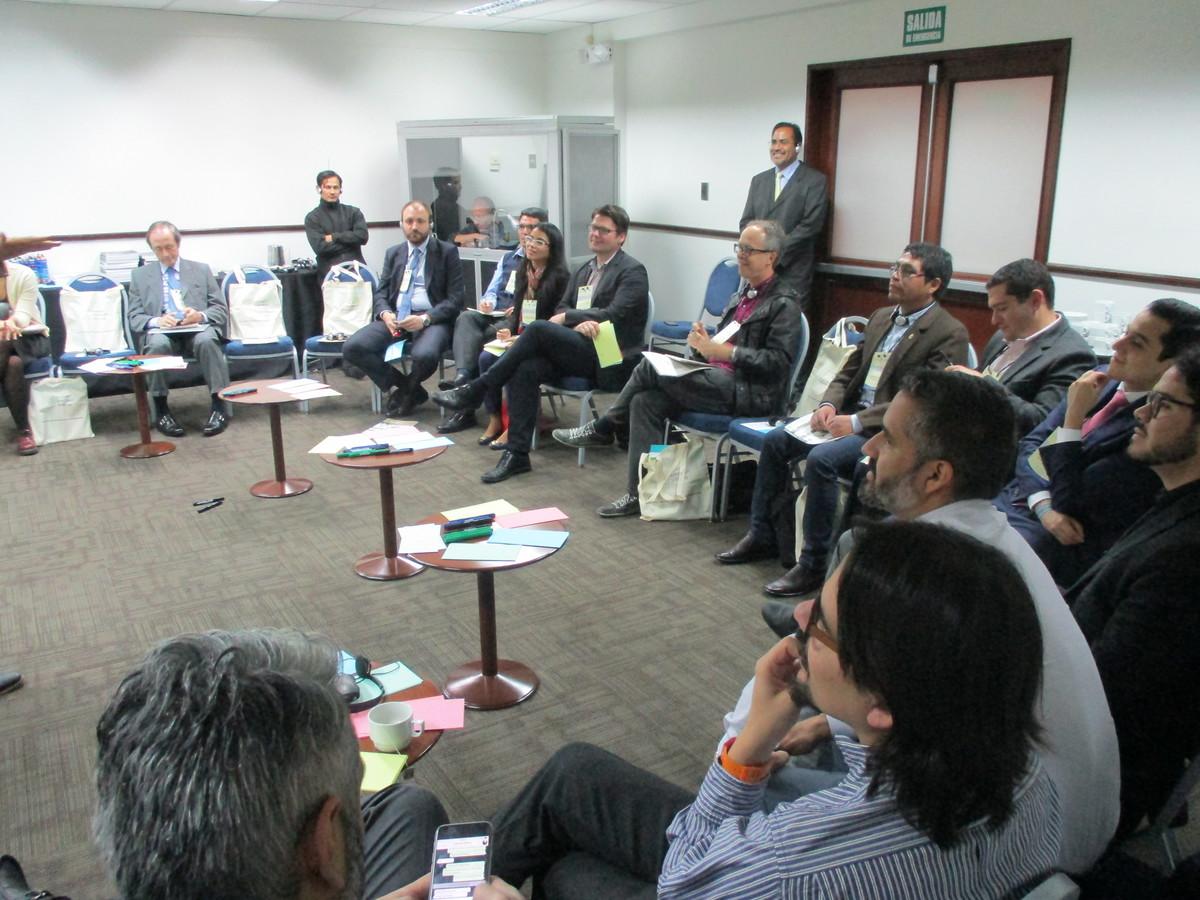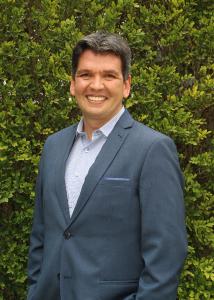Event reports
This event had the participation of the Executive Branch representatives (Local governments) and Legislative Branch of Latin America, together with Senior Officers of the CAF-Bank of Development, the Colombian Despacio Organization and the ITPD, co-organizers of the event, together with the EKLA-KAS Programme.
After these questions were posed by Cornie Huizenga (SloCaT): “Why is it so difficult to implement something logical?, and Is there any political will in the countries?" the event started. A series of actors with different participation level and influence in the Transportation matters were identified, the main were:
-Executive Branch: Due to the delay in passing law that incentivises Sustainable Transport and the difficulty of maintaining continuity in the long-term plans.
-Legislative Branch: Due to the insufficient auditing in the promulgated norms and, on the other hand, due to a lack of laws that accelerate and foster the transit towards a Sustainable Transport that will benefit the society in general.
-Local Governments: Due to the difficulty of achieving solutions that integrate neighbouring jurisdictions (districts, departments, etc.).
It is worth mentioning that Corruption was considered as a huge transversal hinder that, in many cases, obstructs the processes and challenges funding, bids and the long-term reforms, in general.
However, since the main goal of the Round Table was to end the event with solutions more than diagnostics, three main action blocks were rescued from all the proposals and discussions. As follows, by degree of acceptance:
1)To legislate: It was concluded that it is the main factor and the one with higher expectations to become true in a short-term basis, this legislation that includes the promulgation, the implementation follow-up and the permanent audit. It should have the pedestrian as a priority, to adapt to reality and to know how to "read" what the common citizen needs (for example: unnecessary pedestrian bridges), to look for consensus among the stakeholders and to achieve immediate solutions in the case of high conflict (partial pedestrian crossings in the streets), to make streets and public space to be meeting points, inclusive areas (people with disabilities) and not only for transit; this legislation should be supported with efficient, transparent and objective information, based on arguments where the economic, social, environmental and political (used man/hours and reduction of accidents, contamination and stress, etc.) cost/benefit is all linked.
2)To observe : As above-mentioned, the information should be consistent, transparent and feasible. To achieve this, it is necessary to have entities working in parallel to the Governmental powers (Mobility observatories), which from an independent and objective from can be the source feeding and justifying legislative reforms. They should have a high sense of opportunity in the issuance of their results and research (accurate timing when discussing at the Parliament) and, on the other hand, to generate media impact on the civil society to raise awareness at every level and to change the attitude of the citizen, together with the necessary pressure for the decision-makers include these topics in their agendas.
3)To train: It was concluded that training to decision-makers is another important factor to achieve the Sustainable Transport objectives. It was considered that the ideas exchange opportunities with representative from other countries that will reach, through open discussion and brainstorming, solutions that may then be replicated in their countries from their positions. The opportunities, such as international fora, regional think tanks associations or round tables and workshops with small groups (but highly representative) as the one carried out in Lima, were those greatly accepted by the attendees.
Finally, it was considered that the Sustainable Development Objectives and the COP 21 agreements ("To reduce by 80% the GHG") must be the light guiding the policies and actions of the countries to achieve that Sustainable Mobility to be considered as the foundation to reduce poverty and to increase equity on a positive circle of Development and, in the manner, the “Political Will” will become a "Collective Will" that will include all in the "City Projects" to improve the present and the well-being of the future in the region.



